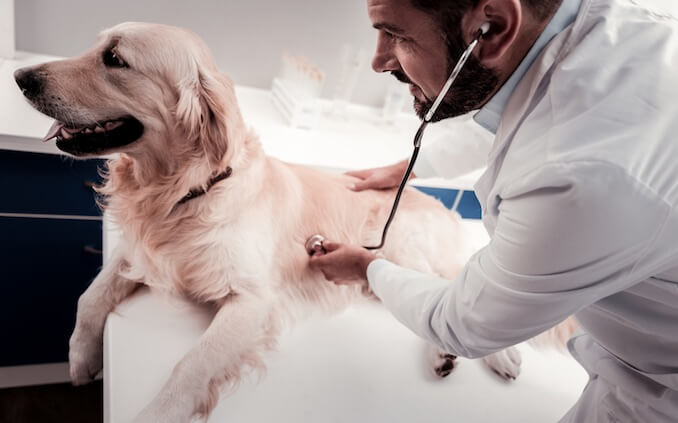A Pet Emergency Guide For Pet Parents
 As a pet parent, there is no doubt that you want nothing but the best for your furred best friend. Nevertheless, it is almost impossible to keep an eye on your pet all the time especially if they have an active lifestyle. Thanks to that, most pet parents are used to finding their pets with injuries or an issue that requires veterinary care. It is, however, vital to note that while some of these issues can be put at rest until you find the time to take their pooch to the vet, others are emergencies and hence cannot wait until you have an off day from work. Also while some of these emergencies are obvious, others can be quite hard to identify. So as a pet parent, how do you distinguish a pet emergency from a problem that can wait till morning? Find out below.
As a pet parent, there is no doubt that you want nothing but the best for your furred best friend. Nevertheless, it is almost impossible to keep an eye on your pet all the time especially if they have an active lifestyle. Thanks to that, most pet parents are used to finding their pets with injuries or an issue that requires veterinary care. It is, however, vital to note that while some of these issues can be put at rest until you find the time to take their pooch to the vet, others are emergencies and hence cannot wait until you have an off day from work. Also while some of these emergencies are obvious, others can be quite hard to identify. So as a pet parent, how do you distinguish a pet emergency from a problem that can wait till morning? Find out below.
Examples Of A Pet Medical Emergency
As noted above, some pet medical emergencies can be quite easy to note. For instance, when you come from work to find your cat or dog bleeding profusely, you don’t need Google to tell you this is an emergency. In some emergencies, your pet may not exhibit any physical signs at all. However, it may show changes in behavior. As a pet parent, there’s no doubt that you know your pooch well, so when you sense that something isn’t right ensure you consult a vet to be sure all is well.
When your pet is having problems passing stool or urinating or cannot do either, then this is an issue you should handle with immediate effect as there might be a blockage in their digestive or urinary tract. When your pooch is unable to poop or pee then, it will be incredibly uncomfortable and will show changes in mood. If you note this and also changes in their passing stool or urinating habits ensure you contact or take them to an emergency vet williamsport pa immediately.
When your pet is gagging, breathing through the mouth or has a constant cough, do not hesitate to take it or call a skilled emergency vet as this might be a sign it is not getting enough oxygen. Seizures are not normal in pets. They are often a sign of something more serious. Treat them as an emergency if it is the first time they are happening, and you have no medical solution from a vet. Call a vet immediately especially if your pooch does not come out of the seizure.
Let’s face it; most pets can never resist food. While some might refuse to drink water, they usually can’t go for more than 24 hours without drinking some. Therefore, if your furred best friend refuses to eat its favorite treats, then all is not well. Also, if it refuses to drink for more than 24 hours, then something is amiss. Ensure you consult your emergency vet as soon as you can.
Other Examples Of Animal Emergencies
– When you suspect, or you know your pet has eaten something poisonous
– Extreme anxiety or pain
– Injuries around the pet’s eyes
– Severe vomiting and diarrhea
What To Do
If you decide to take your pet to an emergency vet, it is vital that you safeguard your wellbeing as some pets tend to be aggressive when injured or when sick. You can do so by approaching your pet gently to prevent it from hurting you.
For instance, if it’s a cat, place something on its head, for example, a towel, so it doesn’t bite you and slowly put it in a box or carrier if you have one. In the case of a dog, approach it gently while calling its name. Try to pet it but if it shows aggression ask someone to give you a hand. If it does not, find a way to take it to the vet comfortably. For instance, you could carry it on your lap and support its neck and back while someone drives you to the vet or you could make a makeshift stretcher.



